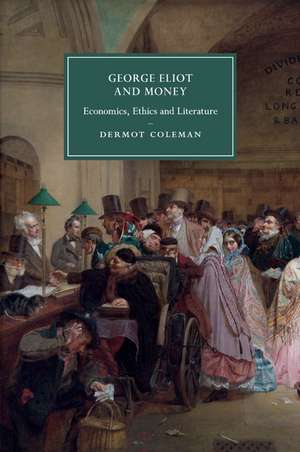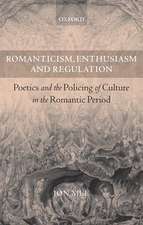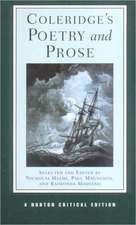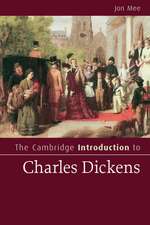George Eliot and Money: Economics, Ethics and Literature: Cambridge Studies in Nineteenth-Century Literature and Culture, cartea 90
Autor Dermot Colemanen Limba Engleză Paperback – 31 aug 2016
Din seria Cambridge Studies in Nineteenth-Century Literature and Culture
-
 Preț: 176.74 lei
Preț: 176.74 lei -
 Preț: 177.52 lei
Preț: 177.52 lei -
 Preț: 236.96 lei
Preț: 236.96 lei -
 Preț: 294.81 lei
Preț: 294.81 lei - 9%
 Preț: 627.22 lei
Preț: 627.22 lei - 19%
 Preț: 608.35 lei
Preț: 608.35 lei -
 Preț: 236.78 lei
Preț: 236.78 lei -
 Preț: 447.30 lei
Preț: 447.30 lei - 8%
 Preț: 530.42 lei
Preț: 530.42 lei - 9%
 Preț: 593.58 lei
Preț: 593.58 lei -
 Preț: 237.41 lei
Preț: 237.41 lei - 9%
 Preț: 627.52 lei
Preț: 627.52 lei -
 Preț: 201.59 lei
Preț: 201.59 lei - 11%
 Preț: 697.89 lei
Preț: 697.89 lei - 11%
 Preț: 580.30 lei
Preț: 580.30 lei -
 Preț: 287.28 lei
Preț: 287.28 lei - 9%
 Preț: 592.33 lei
Preț: 592.33 lei - 11%
 Preț: 641.67 lei
Preț: 641.67 lei - 5%
 Preț: 681.46 lei
Preț: 681.46 lei -
 Preț: 202.74 lei
Preț: 202.74 lei - 11%
 Preț: 642.48 lei
Preț: 642.48 lei - 11%
 Preț: 694.58 lei
Preț: 694.58 lei - 11%
 Preț: 584.77 lei
Preț: 584.77 lei - 11%
 Preț: 582.20 lei
Preț: 582.20 lei -
 Preț: 286.42 lei
Preț: 286.42 lei -
 Preț: 317.11 lei
Preț: 317.11 lei -
 Preț: 283.63 lei
Preț: 283.63 lei -
 Preț: 283.03 lei
Preț: 283.03 lei -
 Preț: 296.72 lei
Preț: 296.72 lei -
 Preț: 353.48 lei
Preț: 353.48 lei -
 Preț: 290.16 lei
Preț: 290.16 lei -
 Preț: 286.69 lei
Preț: 286.69 lei -
 Preț: 282.65 lei
Preț: 282.65 lei -
 Preț: 285.54 lei
Preț: 285.54 lei -
 Preț: 326.39 lei
Preț: 326.39 lei - 11%
 Preț: 697.28 lei
Preț: 697.28 lei
Preț: 282.48 lei
Nou
Puncte Express: 424
Preț estimativ în valută:
54.06€ • 58.70$ • 45.41£
54.06€ • 58.70$ • 45.41£
Carte tipărită la comandă
Livrare economică 22 aprilie-06 mai
Preluare comenzi: 021 569.72.76
Specificații
ISBN-13: 9781107666597
ISBN-10: 1107666597
Pagini: 242
Dimensiuni: 152 x 229 x 14 mm
Greutate: 0.33 kg
Editura: Cambridge University Press
Colecția Cambridge University Press
Seria Cambridge Studies in Nineteenth-Century Literature and Culture
Locul publicării:New York, United States
ISBN-10: 1107666597
Pagini: 242
Dimensiuni: 152 x 229 x 14 mm
Greutate: 0.33 kg
Editura: Cambridge University Press
Colecția Cambridge University Press
Seria Cambridge Studies in Nineteenth-Century Literature and Culture
Locul publicării:New York, United States
Cuprins
Introduction; 1. 'A subject of which I know so little': George Eliot and political economy; 2. 'Intentions of stern thrift': the formation of a vernacular economics; 3. 'A money-getting profession': negotiating the commerce of literature; 4. Calculating consequences: Felix Holt and the limits of utilitarianism; 5. Testing the Kantian pillars: debt obligations and financial imperatives in Middlemarch; 6. Being good and doing good with money: incorporating the bourgeois virtues; 7. The individual and the State: economic sociology in Romola; 8. The politics of wealth: new liberalism and the pathologies of economic individualism; Appendix A. George Eliot's final stock portfolio, 1880; Appendix B. Was Edward Tulliver made bankrupt? An analysis of his financial downfall; Bibliography.
Notă biografică
Descriere
This book examines George Eliot's understanding of money and economics within the context of the ethics of economics in nineteenth-century England.













